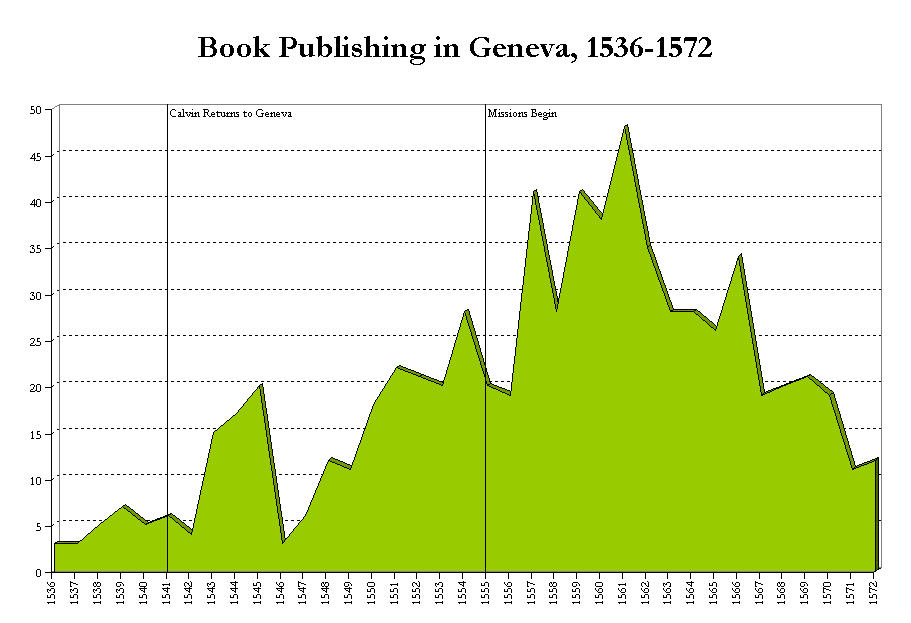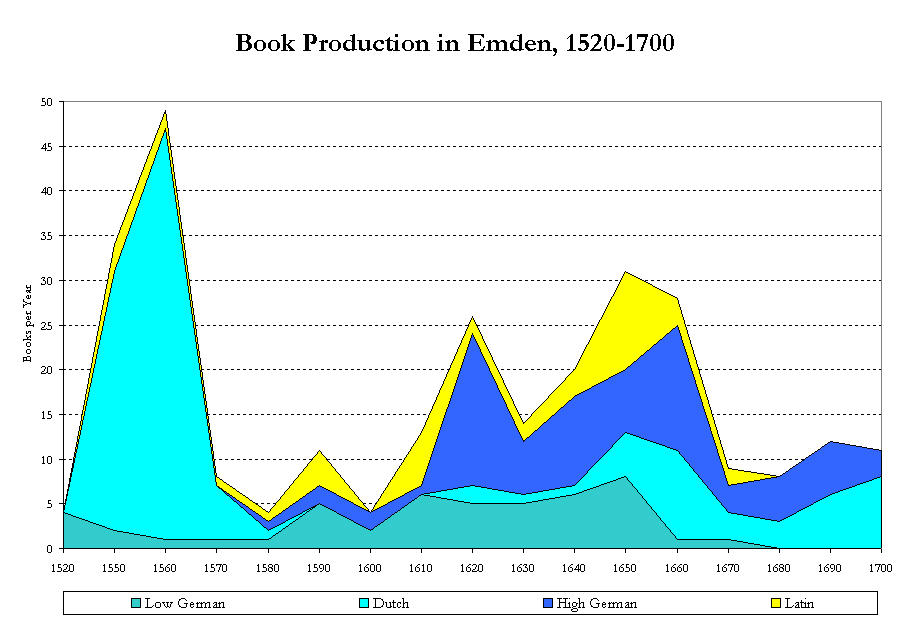
The Spread of Reformed Protestantism: The Evidence of Publishing
Beginning in the 1550s, Reformed Protestantism spread rapidly from its principal base in the Swiss city-state of Geneva and from the lesser, northern center in Emden, a major harbor town on the North Sea. During the 1540s, Geneva had become one of many refuges for people exiled from their home countries for reasons of belief; another such center was the Rhineland in Germany, whose Reformed congregations took in exiles from England, France, and the Walloon portions of the Netherlands; Emden, too, received exiles from the Netherlands. The surge in missionary activity, however, dated only from the 1550s. Its effect on the demand for Calvinist confessional literature can be discerned in these data from Geneva and Emden: in the half-decade after missions began, the volume of book publishing in Geneva more than doubled, from about twenty editions per year to nearly fifty in the peak year (1561).
